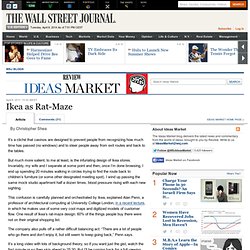

How American Politics Became So Ineffective. It’s 2020, four years from now.

The campaign is under way to succeed the president, who is retiring after a single wretched term. Voters are angrier than ever—at politicians, at compromisers, at the establishment. Congress and the White House seem incapable of working together on anything, even when their interests align. With lawmaking at a standstill, the president’s use of executive orders and regulatory discretion has reached a level that Congress views as dictatorial—not that Congress can do anything about it, except file lawsuits that the divided Supreme Court, its three vacancies unfilled, has been unable to resolve. On Capitol Hill, Speaker Paul Ryan resigned after proving unable to pass a budget, or much else. When Suddenly No Lives Matter. We Are the Generation That Doesn't Want Relationships.
Emotional Van Jones: How do I explain this to my children? The Fallen of World War II - Data-driven documentary about war & peace. 22 Maps That Show The Deepest Linguistic Conflicts In America. This Kid Thinks We Could Save So Many Lives If Only It Was OK To Say 4 Words. Dialect Survey Results. 21 Emotions For Which There Are No English Words [Infographic]
Rethinking the Concept of “Outliers”: Why Non-Experts are Better at Disruptive Innovation. This post written by entrepreneur and philanthropist Naveen Jain.

He is the founder of World Innovation Institute, Moon Express, iNome and Infospace. Naveen is a trustee of Singularity University and X Prize foundation. Follow Naveen Jain on Twitter: @Naveen_Jain_CEO Naveen Jain - Trustee at Singularity University Bestselling author Malcolm Gladwell says it takes 10,000 hours to become expert at something, whether it’s playing the guitar, charting the stars or writing software code.
That’s an interesting thesis on the part of Gladwell, and perhaps true in yesteryear, but in today’s world of growing exponential technologies, I beg to differ. I believe that people who will come up with creative solutions to solve the world’s biggest problems — ecological devastation, global warming, the global debt crisis and distribution of dwindling natural resources, to name a few — will NOT be experts in their fields. Myopic Thinking. The Illusion of Choice. It seems like in today’s world there are fewer and fewer people making choices for the greater good.
What I mean to say is that everything in our world seems to be able to be consolidated. The media of course is no exception to this trend with only 6 major companies dictating about 90% of the media we have access to. In less than 30 years the number of companies providing us with our media has dropped from 50 to just 6. The six companies consisting of GE, New-corp, Disney, Viacom, Time Warner, and CBS.
If your wondering who owns the major networks its CBS of course, GE owns NBC, News-corp owns fox, and Disney owns ABC. A reason for concern is the gross misrepresentation have so few companies controlling so much causes. If the free market had truly decided who was the winner and loser I would have no problem with there just being six companies running our media. Click to enlarge Share This Infographic. Everything is a Remix Part 1.
Everything is a Remix Part 2. Everything is a Remix Part 3. Everything is a Remix Part 4. Bullies Called Him Pork Chop. He Took That Pain With Him And Then Cooked It Into This.
Technology. A Rethought Calendar Makes Each Year Identical to the One Before. <img src="<a pearltreesdevid="PTD2169" rel="nofollow" href=" class="vglnk"><span pearltreesdevid="PTD2170">http</span><span pearltreesdevid="PTD2172">://</span><span pearltreesdevid="PTD2174">pixel</span><span pearltreesdevid="PTD2176">.

Ikea as Rat-Maze - Ideas Market. By Christopher Shea It’s a cliché that casinos are designed to prevent people from recognizing how much time has passed (no windows) and to steer people away from exit routes and back to the tables.

But much more salient, to me at least, is the infuriating design of Ikea stores. Invariably, my wife and I separate at some point and then, once I’m done browsing, I end up spending 20 minutes walking in circles trying to find the route back to children’s furniture (or some other designated meeting spot). I wind up passing the same mock studio apartment half a dozen times, blood pressure rising with each new sighting.
This confusion is carefully planned and orchestrated by Ikea, explained Alan Penn, a professor of architectural computing at University College London, in a recent lecture, in which he makes use of some very cool maps and digitized models of customer flow. How can a font alleviate reading problems. Dyslexics invert and transpose letters because they confuse letters that look alike.

The switching of b and d, for example, is very common because the letters are simply reflections of each other. (In fact, dyslexia is much more common for English readers than readers of other languages, like Italian, in which words are spelled phonetically more than they are in English.) One of the biggest variables today in how we read are fonts—the visual style of letters. Fonts are designed in part with aesthetic goals, but there are features of fonts that can make reading easier or not. Video: MIT Constructs Old-Age-Simulator Suit to Make Young People Feel Elderly. I have a vague memory of an exercise in elementary school in which, among other contrivances, the students smeared Vaseline on a pair of non-prescription glasses in order to simulate the effects of old age.

As good as that science was, some researchers over at MIT created an impressive full-body aging simulation, complete with bungees (to bend the body and make everyday tasks more difficult) and a jumpsuit (because old people like jumpsuits (I think)). A product of the MIT Age Lab, the project has the DARPA-level acronym AGNES, which stands, only slightly awkwardly, for Age Gain Now Empathy System. It's a full-body suit that mostly relies on bungees to bend the body and make ordinary tasks more difficult.
The helmet is bungeed to the torso, causing the wearer to bend forward; the wrists are bungeed to the hips, making reaching and grabbing difficult (but inadvertently providing an excellent resistance-band workout); and the legs are bungeed to the waist, making walking more strenuous.